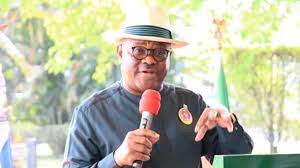
The Independent National Electoral Commission (INEC) has proposed sweeping reforms to Nigeria’s electoral system following insights gained from the 2023 general elections and subsequent off-cycle polls. Among the key reforms being considered are diaspora voting and the phasing out of the use of Permanent Voter Cards (PVCs) for voter accreditation.
INEC Chairman, Mahmood Yakubu, outlined these proposals during a meeting with Resident Electoral Commissioners (RECs) in Abuja. He explained that these reforms are part of a comprehensive review report on the 2023 elections, which includes 142 recommendations covering various aspects of the electoral process.
One of the major reforms is the shift from using PVCs as the sole means of voter accreditation. While voters with PVCs will still be able to use them for voting, INEC suggests adopting computer-generated slips or downloadable credentials from the commission’s website for future elections. This change aims to reduce costs and eliminate practices such as the buying of PVCs to disenfranchise voters.
Yakubu also highlighted the importance of legal clarity in the transmission of election results, advocating for clearer guidelines regarding the use of manual versus electronic methods. The introduction of the Bimodal Voter Accreditation System (BVAS) has already raised questions about how results should be transmitted, and INEC seeks to address these concerns with legislative clarity.
Other proposed reforms include the introduction of diaspora voting, which would allow Nigerians abroad to participate in elections, and the establishment of an electoral offences tribunal. INEC also plans to enhance voter access and distribution to polling units, as well as collaborate with the National Identity Management Commission to clean up the voter register.
Additionally, the commission aims to unbundle its responsibilities by creating a separate agency for political party registration and regulation. There will also be a focus on improving voter education, tackling misinformation, and increasing participation from marginalized groups through affirmative action.
Yakubu stressed that these recommendations would be presented to the National Assembly for legislative action, while some proposals require administrative action by INEC and collaboration with external stakeholders, such as security agencies and civil society organizations.
The reform proposals reflect INEC’s commitment to creating a more efficient, inclusive, and transparent electoral process. The full report will soon be made available to the public.





